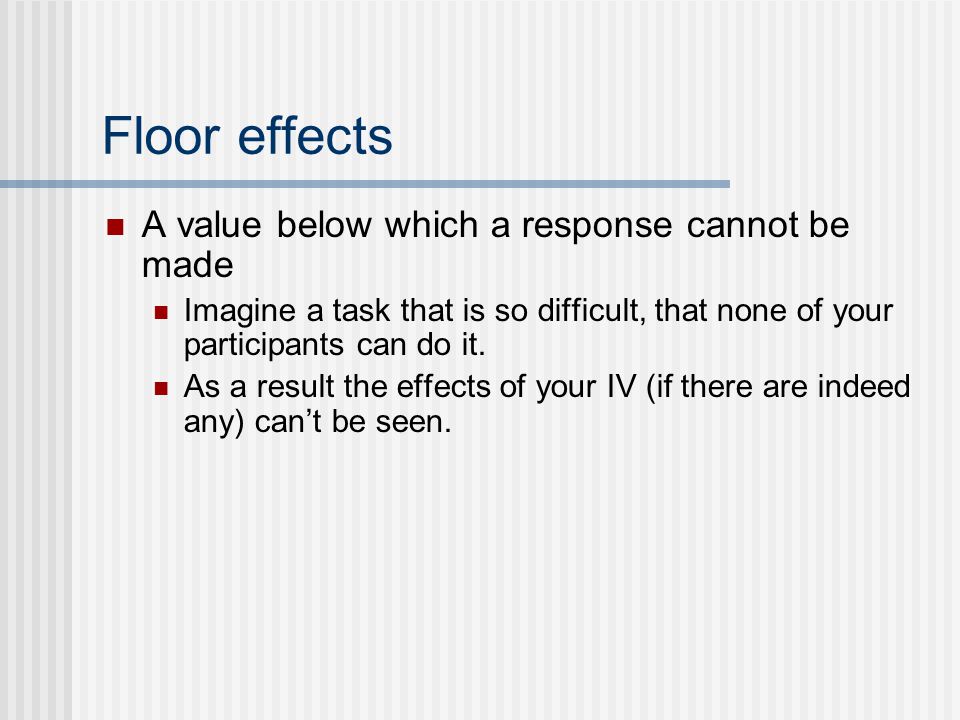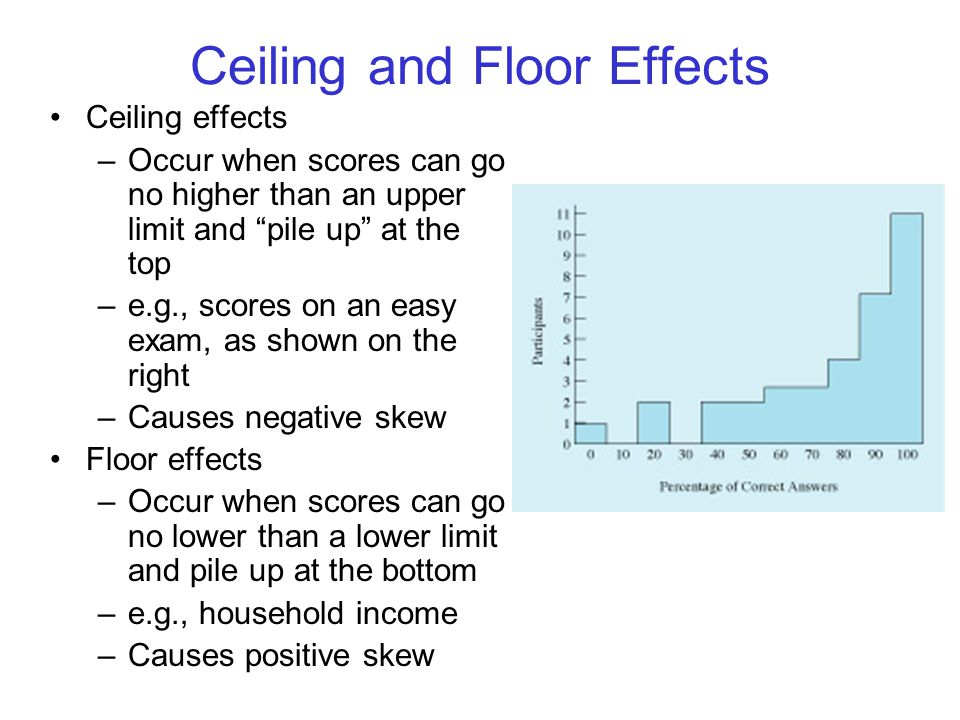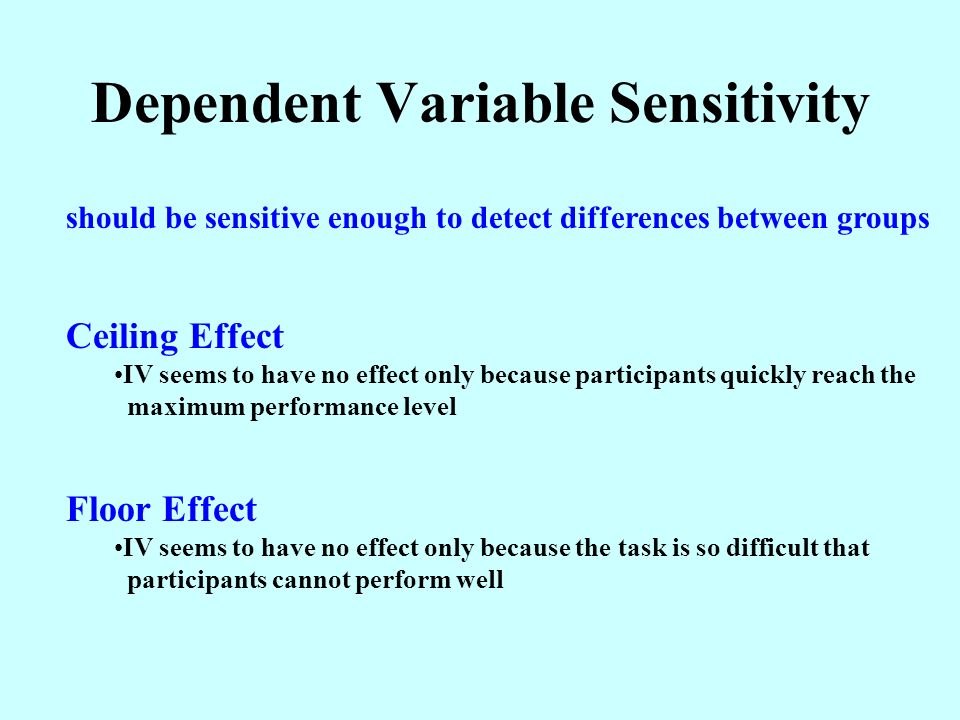Floor Effect Definition Psychology

A ceiling effect can occur with questionnaires standardized tests or other measurements used in research studies.
Floor effect definition psychology. Ceiling effects and floor effects both limit the range of data reported by the instrument reducing variability in the gathered data. Onsale alogia definition psychology and floor effect psychology download. In research a floor effect aka basement effect is when measurements of the dependent variable the variable exposed to the independent variable and then measured result in very low scores on the measurement scale. Limited variability in the data gathered on one variable may reduce the power of statistics on correlations between that variable and another variable.
A floor effect is when most of your subjects score near the bottom. In statistics and measurement theory an artificial lower limit on the value that a variable can attain causing the distribution of scores to be skewed. This could be hiding a possible effect of the independent variable the variable being manipulated. The term ceiling effect is a measurement limitation that occurs when the highest possible score or close to the highest score on a test or measurement instrument is reached thereby decreasing the likelihood that the testing instrument has accurately measured the intended domain.
Ceiling effect is used to describe a situation that occurs in both pharmacological and statistical research. In layperson terms your questions are too hard for the group you are testing. The term ceiling effect has two distinct meanings referring to the level at which an independent variable no longer has an effect on a dependent variable or to the level above which variance in an independent variable is no longer measured or estimated an example of the first meaning a ceiling effect in treatment is pain relief by some kinds of analgesic drugs which have no further effect. Psychology definition of floor effect.
The inability of a test to measure or discriminate below a certain point usually because its items are too difficult. This is even more of a problem with multiple choice tests. With other types if the subject doesn t know they aren t. There is very little variance because the floor of your test is too high.
In pharmacology a ceiling effect is the point at which an independent variable which is the variable being manipulated is no longer affecting the dependent variable which is the variable being measured.

















